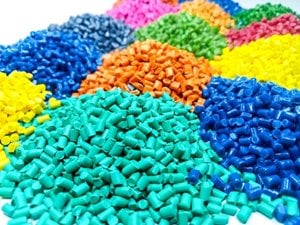Select Your Region
What Is Hydroquinone?

Eastman Hydroquinone
Eastman is a global leader in the production of hydroquinone, offering Hydroquinone USP (United States Pharmacopeia) and Hydroquinone Photographic that meet the highest quality standards to ensure safety, effectiveness, purity, and potency.Hydroquinone Overview
Hydroquinone (HQ) is a simple aromatic compound that has garnered attention for its ability to behave as an intermediate and fast-acting inhibitor and antioxidant in various industries and applications. Chemically known as 1,4-benzenediol, hydroquinone is a benzene ring with a hydroxyl group (-OH) attached at the 1 and 4 positions. Because of the symmetrical arrangement, it is classified as a dihydroxybenzene. It has a molecular formula of C6H602 and a typical molar mass of 110.11 grams per mole (g/mol). In pure form, hydroquinone has a low-color, white crystalline appearance. Due to its polar nature, the compound is soluble in both water and alcohol, providing application versatility.
Mechanism of Action
The primary mechanism of hydroquinone is its ability to react with oxygen and peroxy-free radicals, thereby stopping or slowing down oxidation or undesired chemical reactions. Oxygen molecules are required for hydroquinone to function, and its effectiveness is influenced by external factors, such as temperature, pH, and oxygen availability.
In skin care applications, hydroquinone inhibits the enzyme tyrosinase, which plays a critical role in melanin production. Melanin is the pigment responsible for skin, hair, and eye coloration. In skin care products, hydroquinone interferes with enzymatic reactions that convert the amino acid tyrosine to melanin, reducing melanin synthesis in the skin. This effectively bleaches skin and lightens skin tone, making hydroquinone a popular choice for treating hyperpigmentation, such as age spots, acne scars, freckles, melasma, and inflammatory conditions.
Industrial Uses and Applications

Polymer Production
Hydroquinone acts as an inhibitor to stop unwanted polymerization during the manufacture of various monomers and polymers, including vinyl monomers, acrylic monomers, and unsaturated polyesters. The chemical is also used as an intermediate in the manufacture of polyether ether ketone (PEEK) polymers. In this process, hydroquinone is used to make a disodium salt, which is then reacted with 4,4'-difluorobenzophenone to form the polymer.
Water Treatment
Hydroquinone functions as an oxygen scavenger in water treatment, reducing the amount of oxygen present in systems, resulting in less corrosion to metal components. Hydroquinone is particularly effective at reducing corrosion when combined with hydrazine.
Oil & Gas
In oilfield operations, hydroquinone sequesters oxygen in drilling and completion fluids, preventing fluid degradation and part corrosion and wear. Oxygen removal also reduces hydrogen sulfide formation, a toxic and corrosive gas produced during oil and gas extraction
Paints
Hydroquinone is commonly used as an antiskinning agent in paints, inhibiting surface curing to prevent skin formation during the drying process and providing a smoother application.
Dyes & Colorants
Hydroquinone is used as an intermediate in the manufacture of certain dyes and colorants, such as the production of 1,4-benzenediol dimethyl ether, a component of various dyes and organic pigments.
Photography
Historically, hydroquinone played a significant role in film and photography as a developing agent. It facilitates the reduction of silver ions to metallic silver, an important step in creating images on photographic film.
Flame Retardants
Hydroquinone can be used as a synergistic additive to enhance flame retardant properties in materials. When hydroquinone degrades, it produces beneficial radicals that strengthen the carbon layer structure and improve flame retardancy.
Agriculture
Hydroquinone is used as an intermediate in the manufacture of some agricultural pesticides. It is also an effective nitrification inhibitor that prevents the rapid conversion of ammonium nitrogen in the soil to nitrate, reducing nitrous oxide emissions and improving nitrogen use efficiency.
Benefits in Skin Care Treatments
In skin care, hydroquinone is mainly recognized as an effective lightening agent for hyperpigmentation. This has made it an important ingredient in a wide range of formulations, including creams, lotions, and serums. Hydroquinone-based formulas are frequently recommended by dermatologists for skin conditions, such as melasma, sun damage, dark spots, and other forms of discoloration.
Hydroquinone Safety & Warnings
Due to safety concerns when hydroquinone is used at high concentrations or over prolonged periods, various countries and regulatory bodies have placed bans or restrictions on the use of hydroquinone in over-the-counter (OTC) skin care products. In some jurisdictions, products containing hydroquinone may only be available in lower concentrations, typically up to 2%, without a prescription, with higher concentrations requiring medical supervision. In 2020, the United States banned the sale of hydroquinone in OTC products as part of the CARES Act. A primary concern of OTC hydroquinone is unmonitored overuse, which can have serious risks and cause significant skin damage. Hydroquinone can be safe and effective for short-term use when appropriately prescribed and monitored by a healthcare provider.
Common Side Effects
Common potential side effects of hydroquinone, especially at high concentrations or for long-term use, include the following:
- Skin irritation: Hydroquinone can cause redness, burning, itching, and stinging, particularly for individuals with sensitive skin.
- Allergic reactions: Some users reported allergic reactions, presenting as rashes, hives, or severe itching.
- Ochronosis: Prolonged use of hydroquinone can lead to exogenous ochronosis, a condition characterized by blue-black skin discoloration.
- Sun sensitivity: Hydroquinone can increase the skin's sensitivity to sunlight, leading to a higher risk of sunburn.
- Contact dermatitis: Repeated use can cause contact dermatitis, an inflammatory skin reaction.
Eastman Hydroquinone Portfolio
Hydroquinone USP
Hydroquinone USP from Eastman is widely formulated into skin-lightening creams, lotions, and gels. It meets or exceeds the requirements of the United States Pharmacopeia and is produced under good manufacturing practices for pharmaceutical drugs.Hydroquinone Industrial
Hydroquinone Photographic is Eastman's industrial-grade hydroquinone, effective in various applications as an inhibitor, antioxidant, and intermediate chemical.
Thank you
Thank you for your inquiry and interest in ChemPoint.
We will respond to you shortly.
ChemPoint will not under any circumstances release personal user information to individuals or companies. All information collection is solely used to support ChemPoint customers service communications. Read our Privacy Notice.
Are you in the correct region?
We’ve detected that you are located in a different region than the region selected on the website. Would you like to change your region?
Current Region: English - Canada